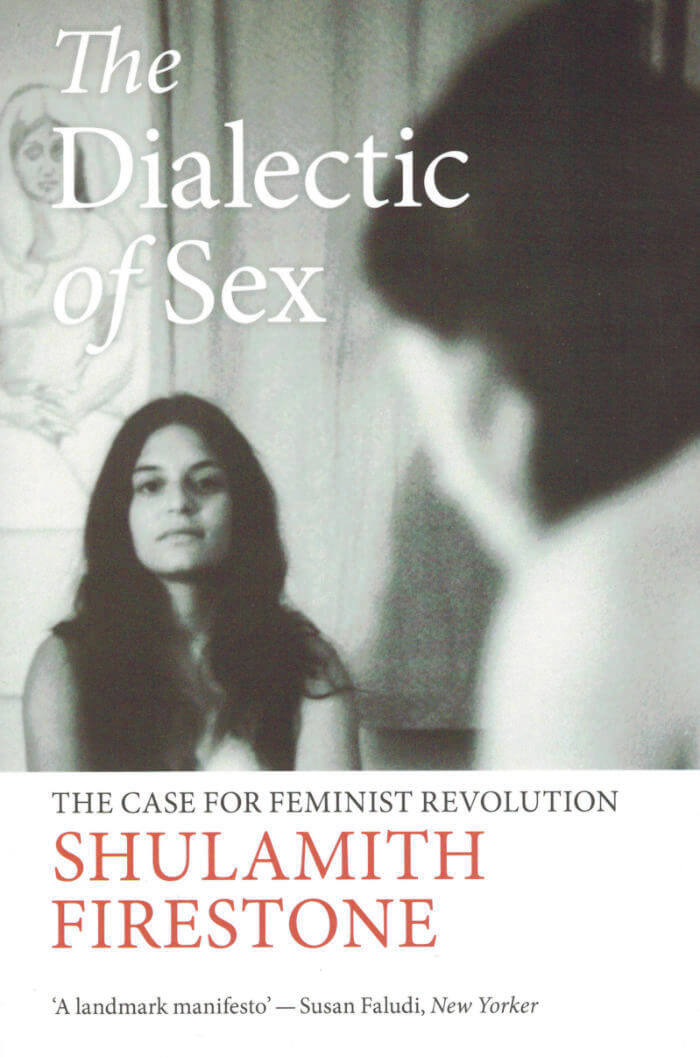
The Dialectic of Sex
An international bestseller, originally published in 1970, when Shulamith Firestone was just twenty-five years old, The Dialectic of Sex was the first book of the women’s liberation movement to put forth a feminist theory of politics.
Beginning with a look at the radical and grassroots history of the first wave (with its foundation in the abolition movement of the time), Firestone documents its major victory, the expansion of the franchise in 1920, and the fifty years of ridicule that followed. She goes on to deftly synthesize the work of Freud, Marx, de Beauvoir, and Engels to create a cogent argument for feminist revolution.
Ultimately she presents feminism as the key radical ideology, the missing link between Marx and Freud, uniting their visions of the political and the personal. The Dialectic of Sex remains remarkably relevant today—a testament to Firestone’s startlingly prescient vision. The author died in 2012, but her ideas live on through this extraordinary book.
Language: English







